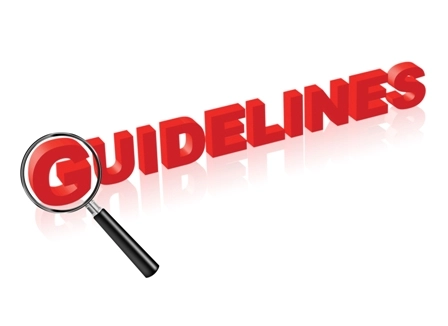Add 3 COVID-19-Related Updates to Your Policies
Good news: Vaccine administration rates just went up. As pandemic restrictions lift and your Part B practice gets back in the swing of things, you’re wise to keep in step with evolving COVID-19 policies — especially with the public health emergency (PHE) expected to stretch into 2022. Read on for the lowdown on three changes you need to know that impact your Medicare claims and reimbursement. 1. Get the Scoop on COVID-19 Vaccine Payment Increases If you’re a COVID-19 vaccine provider, you can expect a little more money in your pocket. Effective March 15, the Centers for Medicare & Medicaid Services (CMS) increased rates from about $28 to $40 for the administration of single-dose vaccines and from about $45 to $80 for the administration of COVID-19 vaccines requiring two doses, according to an MLN Connects Special Edition. Vaccines administered before March 15 will be reimbursed at the original rates. “The exact payment rates will be based on the type of provider offering the vaccine and will be adjusted based on the location of the provider,” explains Wachler & Associates in the law firm’s Health Law blog. Why does this matter? “At a time when vaccine supply is growing, CMS is supporting provider efforts to expand capacity and ensure that all Americans can be vaccinated against COVID-19 as soon as possible,” says a CMS release. Plus, CMS pointed to new data on safety and administration that factored into the decision to update the payment rate, the agency suggests. CMS revised its toolkits to reflect the reimbursement change, ensuring providers will get paid the right amount quickly. The modified toolkits break down the payment differentials by subcategory — Medicare, Medicare Advantage, Medicaid, private payer, and uninsured — with guidance on vaccination administration as well as how to submit claims. Don’t forget: Remember, beneficiaries don’t get charged for COVID-19 vaccine administration. “Providers that receive federally purchased vaccines during the public health emergency must contractually agree to administer COVID-19 vaccines to patients regardless of their ability to pay,” Wachler & Associates reminds. “Providers are therefore prohibited from charging a patient any amount for administration of the vaccine, including a copay, coinsurance, or deductible, including seeking reimbursement from patients, such as balance billing.” Check out the MLN Connects at www.cms.gov/files/document/2021-03-15-mlnc-se.pdf. 2. Know the Codes Removed from the ‘Category 3’ Telehealth Services List CMS published corrections for “technical errors” to the calendar year (CY) 2021 Medicare Physician Fee Schedule (MPFS) in the Federal Register on March 18, including additions previously made to the Medicare telehealth services list. Rollback: CMS originally added 60 new telehealth codes to its approved list and created “Category 3” as a place to list approved telehealth codes through the duration of the COVID-19 PHE in the final rule released in December 2020. Now: Four codes were “inadvertently” put on the “Category 3” list that shouldn’t have been added, CMS says in the notice. The agency is removing the codes with the change retroactive to Jan. 1, 2021. The four CPT® codes impacted include: Review the notice at www.govinfo.gov/content/pkg/FR-2021-03-18/pdf/2021-05548.pdf. 3. Check Out 6 New Code Options to Use With the CS Modifier If you’ve been utilizing modifier CS (Cost-sharing waived for specified covid-19 testing-related services that result in and order for or administration of a covid-19 test…) on your Medicare Part B claims during the PHE, there’s great news. CMS updated its list of acceptable codes, and you’ve got six more choices you can append the modifier to. Backtrack: Starting on March 18, 2020, the Families First Coronavirus Response Act (FFCRA) mandated that Part B practices append modifier CS to any E/M service resulting in the provider either administering or ordering a COVID-19 lab test for the patient for the duration of the PHE. CMS added six new codes it will accept with the CS modifier through the end of the PHE for dates of service on or after Jan. 1, 2021, an MLN Connects indicates. This six codes include the following: HCPCS codes: CPT® codes: “These [codes 98970-98972] replace HCPCS codes G2061-G2063, which are accepted for services provided in 2020,” CMS says in the release. “CPT® codes 98966, 98967, and 98968 are accepted for services with the CS modifier provided on or after March 18, 2020.” Private payers: “It’s crucial to read the guidelines for your payers before submitting claims,” advises Marie Popkin, CPC, CMCS, BSM, ProFee Auditor at HCCS HIM Services in Fort Myers, Florida. “It’s easier and cheaper to do your research on the front end rather than on the back. I recommend to even screenshot the guidelines on the date you are filing — as the guidelines are constantly changing,” she adds. Find more information on the intersection of Medicare claims and the PHE at www.cms.gov/files/document/se20011.pdf and review the MLN Connects at www.cms.gov/files/document/2021-02-11-mlnc.pdf.





